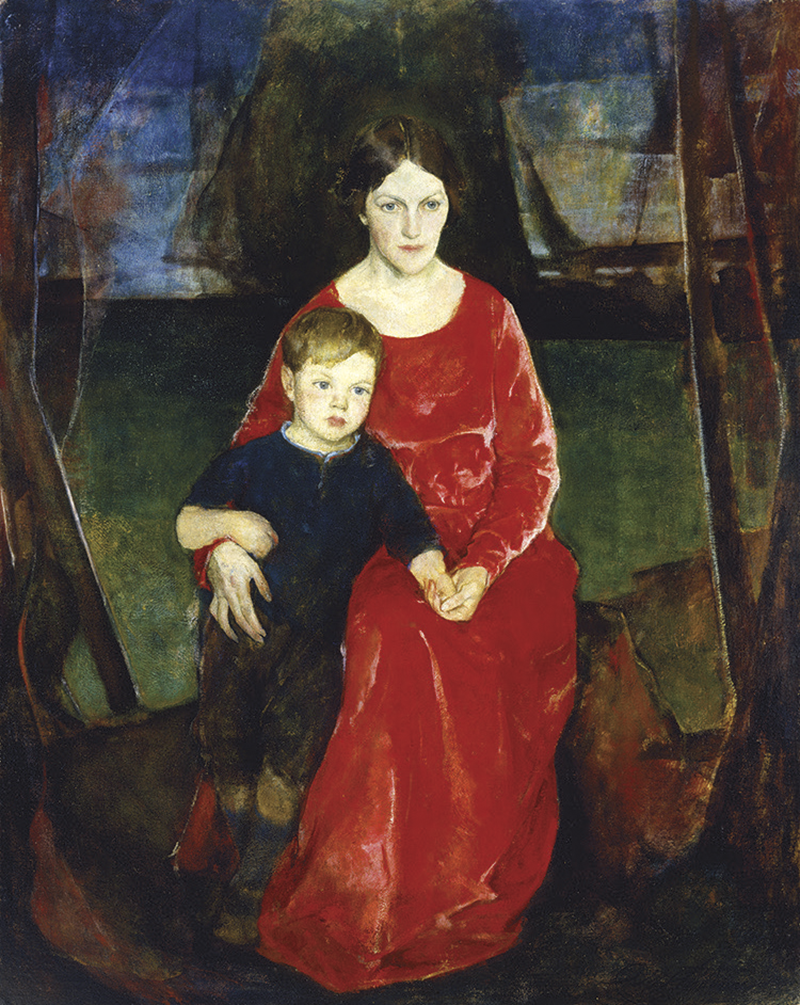It would be a bold writer who would attempt to have the last word on the much-debated maternal instinct. But since so many men have had their say on the subject, perhaps a woman may be permitted to contribute.
Women’s maternity has always been a matter of great import to men. Anthropology tells us that early agricultural tribes made their women the star actresses in orgiastic fertility rites and that their descendants deified an Earth Mother who was the author of all life. The myth of the mother-god survived in one guise or another among the Greeks, the Babylonians, and the Egyptians; centuries later something akin to it sprang up in southern Europe in the form of the cult of the Virgin Mary. No longer considered a symbol of fertility, the new Queen of Heaven soon came to be glorified as the ideal mother, full of bounty and mercy for all mankind. The men of the Middle Ages came to attribute to Mary, Queen of Heaven, all of the tenderness, pity, and self-sacrificing nobility not to be found on earth. But naïve as they were in many respects, they were never so naïve as to identify their goddess with womankind in general.
It was left to the poets of the nineteenth century to see the Madonna in every mother. Wordsworth sang of “A perfect Woman, nobly plann’d, / To warn, to comfort, and command; / And yet a Spirit still, and bright, / With something of angelic light.” Following the same tradition, the American psychologist Edward Thorndike described the maternal instinct as follows:
All women possess from early childhood to death some interest in human babies, and a responsiveness to the looks, gestures, and cries of infancy, being moved to instinctive comforting acts by childish signs of pain, grief, and misery.
The poets and the psychologists alike merely voiced the belief still held by most men that there is something inherently noble in a mother’s love, that every “normal woman” wants babies, and that “the right sort of woman” will devote her life to her children and ask no other outlet for her ego.

American Motherhood, by Charles Webster Hawthorne © Museum of Fine Arts, Houston/Bridgeman Images
In truth, the young woman in her teens who does respond warmly to infants has almost invariably grown up in a home where baby worship was a kind of cult—well-to-do families, usually. The average American girl is more likely to be moved to annoyance, rather than pity, by the sound of an infant’s crying. (It is true that lionesses and tigresses are fierce in defense of their cubs, but it is also true that they will occasionally abandon them, or eat them under stress of starvation.)
There is the appeal to the imagination. The mystery of the experience—the idea of bringing to life another human being, the possibility of exploring a new realm of human relationship—these are the forces which impel many women to conceive, no matter how full their lives may already be. An even more powerful urge is created, doctors tell us, in women who are unable to conceive. Caught in such a dilemma, they feel that nature has cheated them.
But there is evidence to show that the great run of women experience a sharp conflict between their individual desires and their sense of duty to their children. Psychoanalysts today declare it an important factor even before birth; John Flügel asserts that a surprisingly large number of dreams occurring during pregnancy have as their motive the death of the child.
Perhaps men have worshipped woman in her niche of motherhood these many years not because they were honestly convinced that the mother principle was divine, but because it served their purpose to make womankind accept this truism. If women today look in the mirror and see little of the Madonna, let men congratulate them on their sanity, and agree that the Madonna belongs only in heaven.
From “This Maternal Instinct,” which appeared in the September 1929 issue of Harper’s Magazine.









































































































































